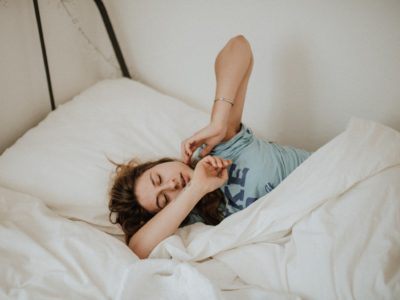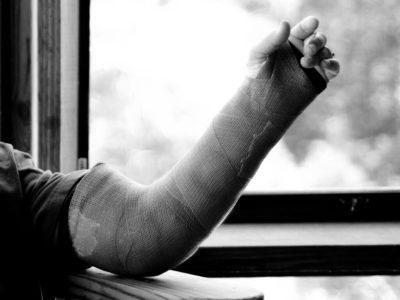The fall semester doesn’t seem to be slowing down anytime soon. You already said goodbye to the days of sleeping until noon, binging on the final episodes of Narcos as you chomp your way through your third bag of popcorn. Alarms run your life as the days drag on and swallow the nights whole. The relationship between you and your bed strains by the day.
A chasm is growing between you and your quilted comforter.
As we approach finals season, the library—once bare as can be—overflows with students. They multiply into the night like zombies, burying their heads in textbooks and growing blind under the glare of their laptop screens.
During these stressful times, pulling all-nighters isn’t a foreign concept among most college campuses. Many students are prominent victims of sleep deprivation. We sacrifice sleep to finish homework assignments, study for exams or a combination of both. It honestly feels like there isn’t enough time in the day to complete these tasks in addition to getting the right amount of sleep necessary to be a functional human being.
Penn State University freshman Amber Bortner shared that she often sleeps around 7 hours per night, but this amount isn’t efficient enough to keep her awake throughout the day.
“I definitely think I need more sleep,” Bortner said. “I normally do homework right before I go to bed, and then I have to wake up early for work or class.”
According to a Southern New Hampshire University study, college-aged adults require at least eight hours of sleep every night. Many of us fall below this recommended amount as we try to balance daily tasks within a limited time frame. The numbers show that the average student actually gets around 6-6.9 hours of sleep, and some even less than that.
Pulling all-nighters may get us through temporary stressful times, but it isn’t the best solution in the long run. Sleep deprivation can lead to trouble with concentration, decision-making and ultimately take a heavy toll on our grades.
It doesn’t help that we try to counter this issue with heavy doses of caffeine to make up for our lack of sleep. I’m just as guilty as the next person as I dive into the endless Starbucks line and request a vanilla soy latte with extra shots of espresso as I struggle to keep my eyes open.
But the truth is that this pseudo-cure only makes matters worse.
Caffeine can negatively impact your sleep routine when it isn’t taken in moderation. And when I say moderation, that means you might want to reconsider those late night library coffee breaks you take between trying to reach the word count of your eight-page research paper. When consumed up to six hours before bedtime, caffeine is even more likely to affect the quality of your sleep according to Coffee & Health.
“Drinking coffee and like having soda definitely keeps me up. I still remain tired, but it’s not as bad,” said Penn State sophomore Katie Gordon.
So how, then are you expected to get through the night without the extra coffee boost? This question takes a little more than one simple answer to solve.
You might try to work adjustments into your sleeping schedule, but this task is a lot easier said than done. For one, all of our bodies are different which means that certain methods may not work for everyone.
Penn State junior Megan Magee offered useful advice about how she stays energized throughout the week. “I just try to keep a steady routine, sleep-wise. I make it a priority to go to bed early so that I don’t pull all nighters,” Magee said.
A consistent sleep routine is shown to benefit college students, but sometimes this isn’t achievable when your class schedule varies from day to day.
Penn State senior Andrea Wan spoke about the difficulties that a busy schedule can bring. “What is sleep?” Wan joked. “I don’t sleep well throughout the night because there’s just a lot of things going on. I can definitely tell people ‘Don’t take 20+ credits and don’t try to do other things while taking 20+ credits like having a social life’.”
Another useful tip is to lay low on the electronics before heading to sleep. While it’s tempting to scroll through your Instagram feed one last time before bed, it’s better to just power the phone off. Our phone screens, as well as our laptops, emit a certain type of blue light that reduces the melatonin in brains. Melatonin largely impacts our sleep cycles, and reducing it can affect our ability to fall asleep according to Sleep.org. It’s recommended to go at least 30 minutes without screens before bedtime.
Additionally, exercise can prove beneficial, not only to your health but also to get a good night’s rest. Managing six hours of sleep a night, Penn State freshman Mariella Dixon is no stranger to sleep deficiency. However, Dixon shared the positive effects that exercise has on her overall sleep quality.
“When I exercise it does help because then I feel more relaxed to go to sleep earlier and more motivated to get my work done earlier, so I’ll be able to go to sleep at a more reasonable time,” Dixon said.
It’s essential to implement the right steps into your daily routine to reach the maximum requirement of rest. Don’t be afraid to experiment to find what works best for you. After all, students who sleep better tend to perform better in the long run, and your school work shouldn’t come at the cost of sleep deprivation.



















